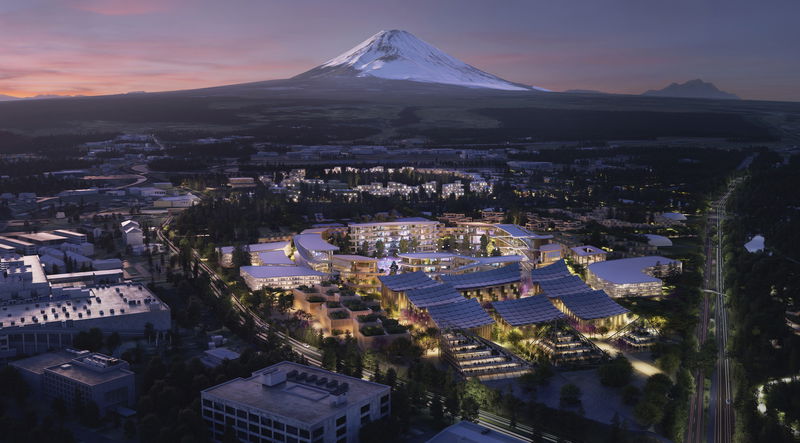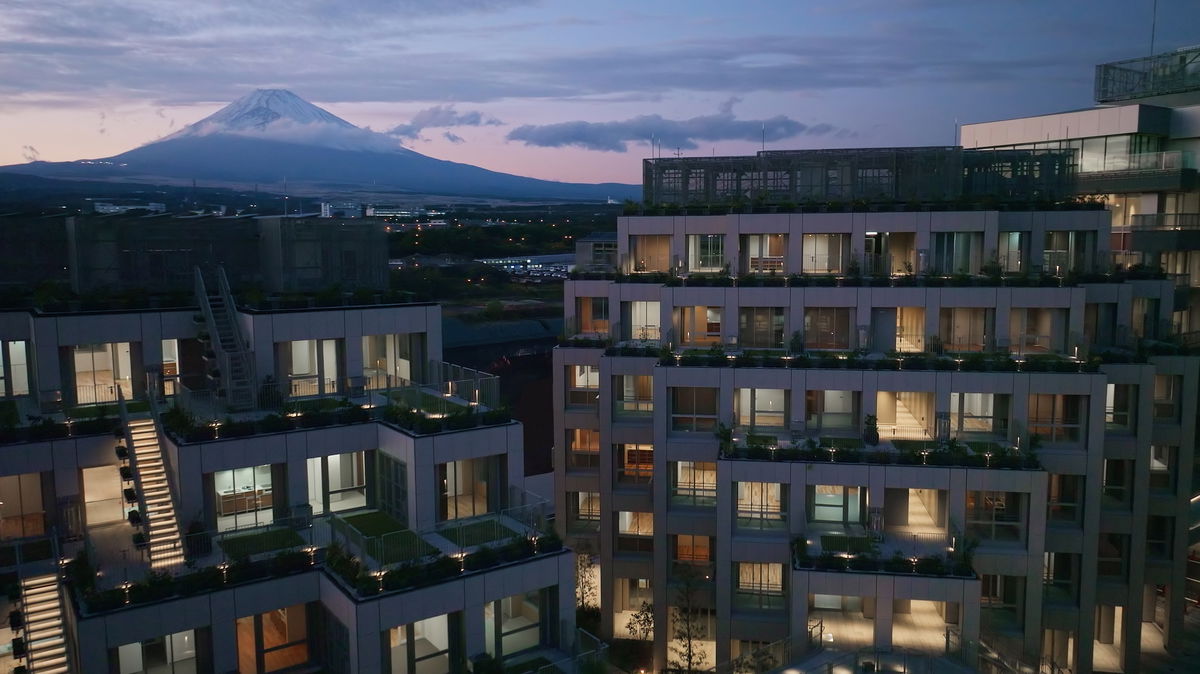
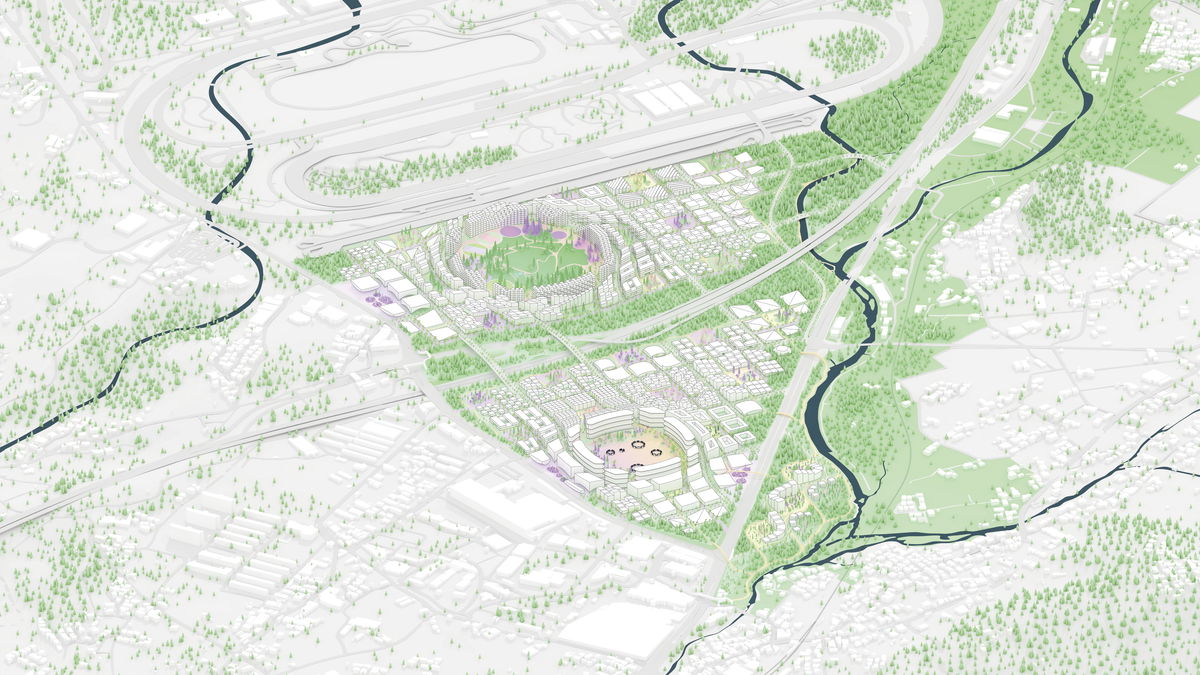
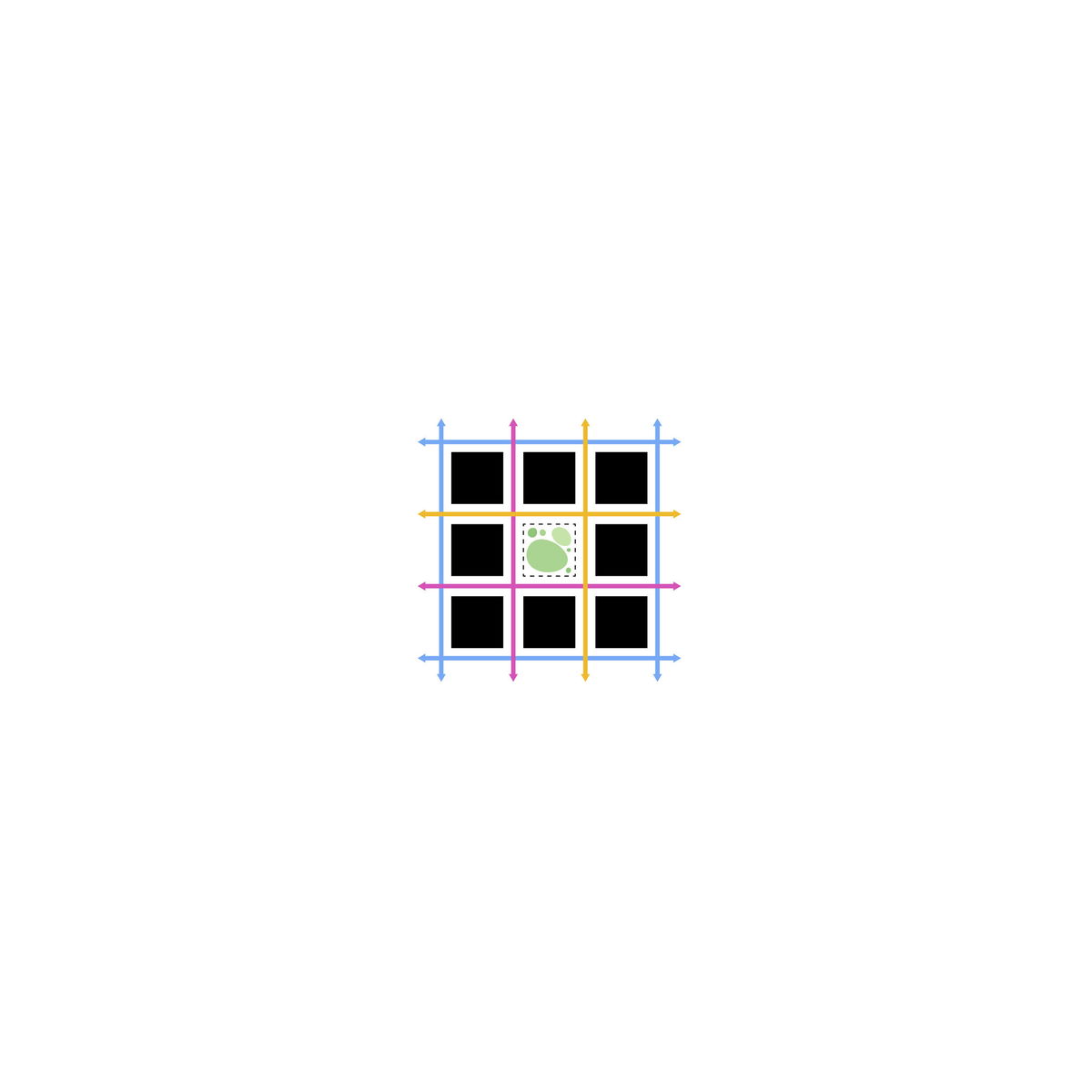
WOVEN BLOCK — The Woven City block becomes more porous than traditional city grids, offering a more human scale environment. The 3x3 typical module has eight building blocks around a central courtyard for pedestrian mobility to weave through.
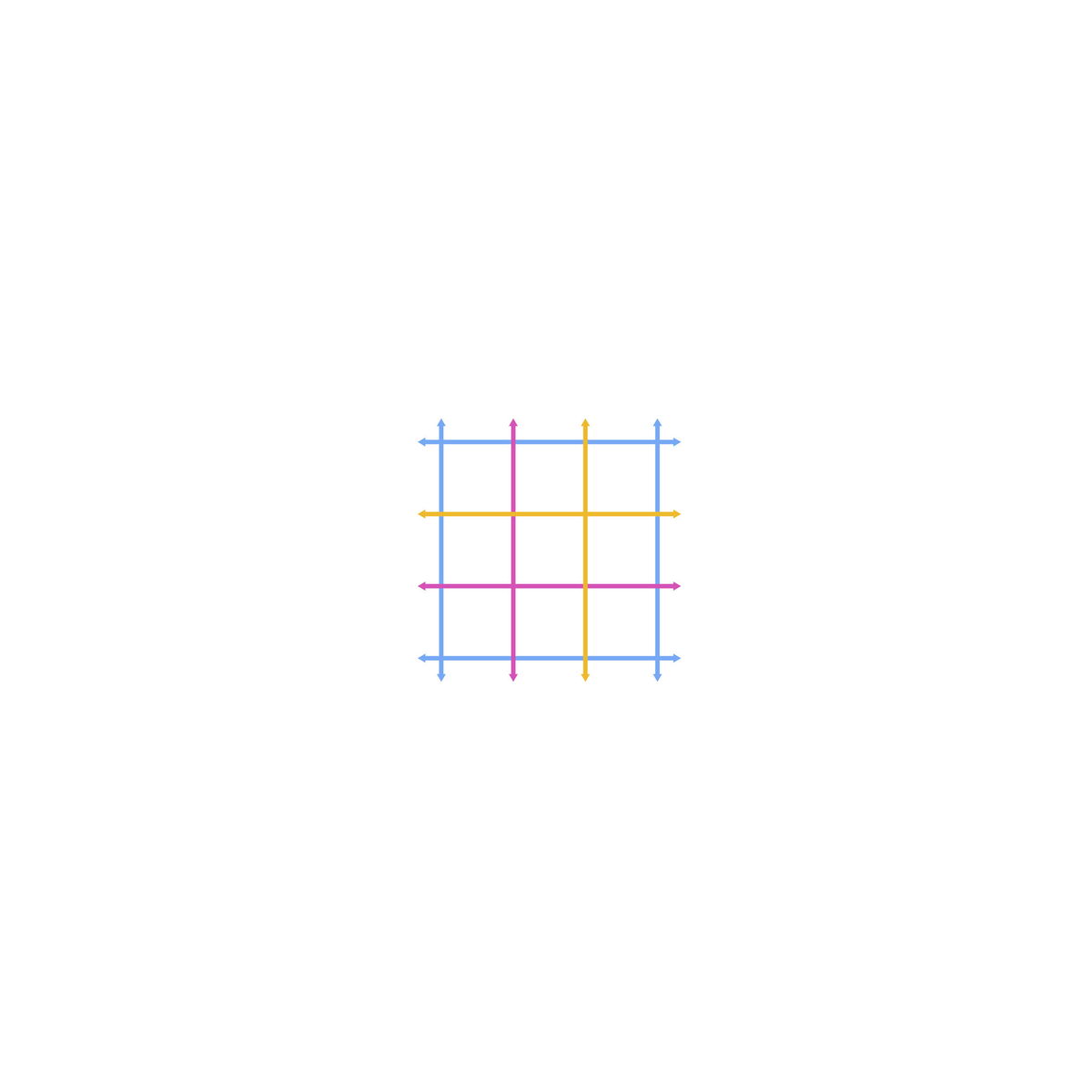
WOVEN GRID — The three street types interweave to create a 3x3 block module, 150 m wide. The streets on the perimeter of the woven block module provide vehicular access for logistical and infrastructural services.
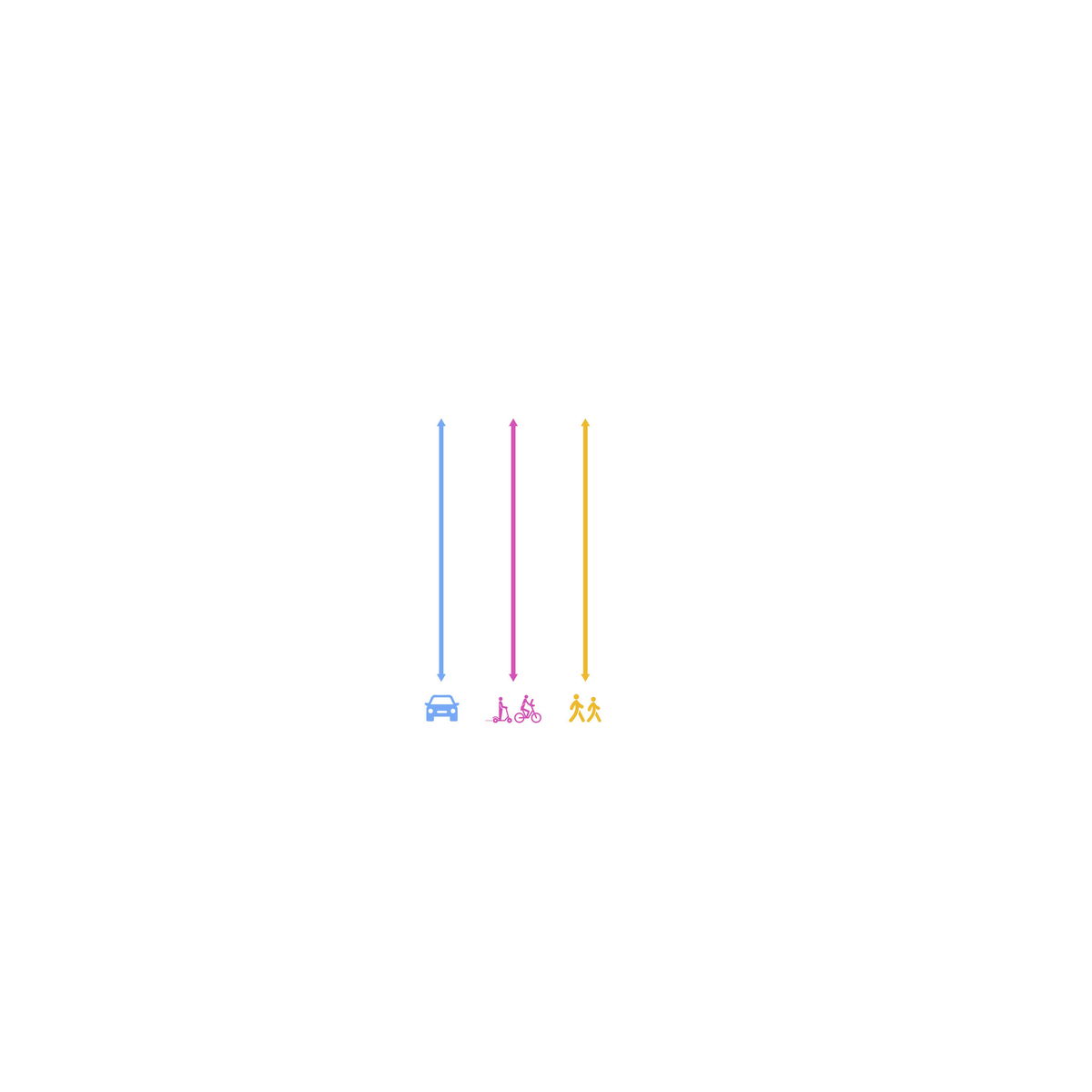
MOBILITY TYPES — Typical streets are shared by vehicular, pedestrian, and other mobility types. The road is mostly dedicated to car traffic and parking lanes, while pedestrians occupy a minor portion of the street. Woven City treats each mobility type equally, creating three separated streets with different functions.
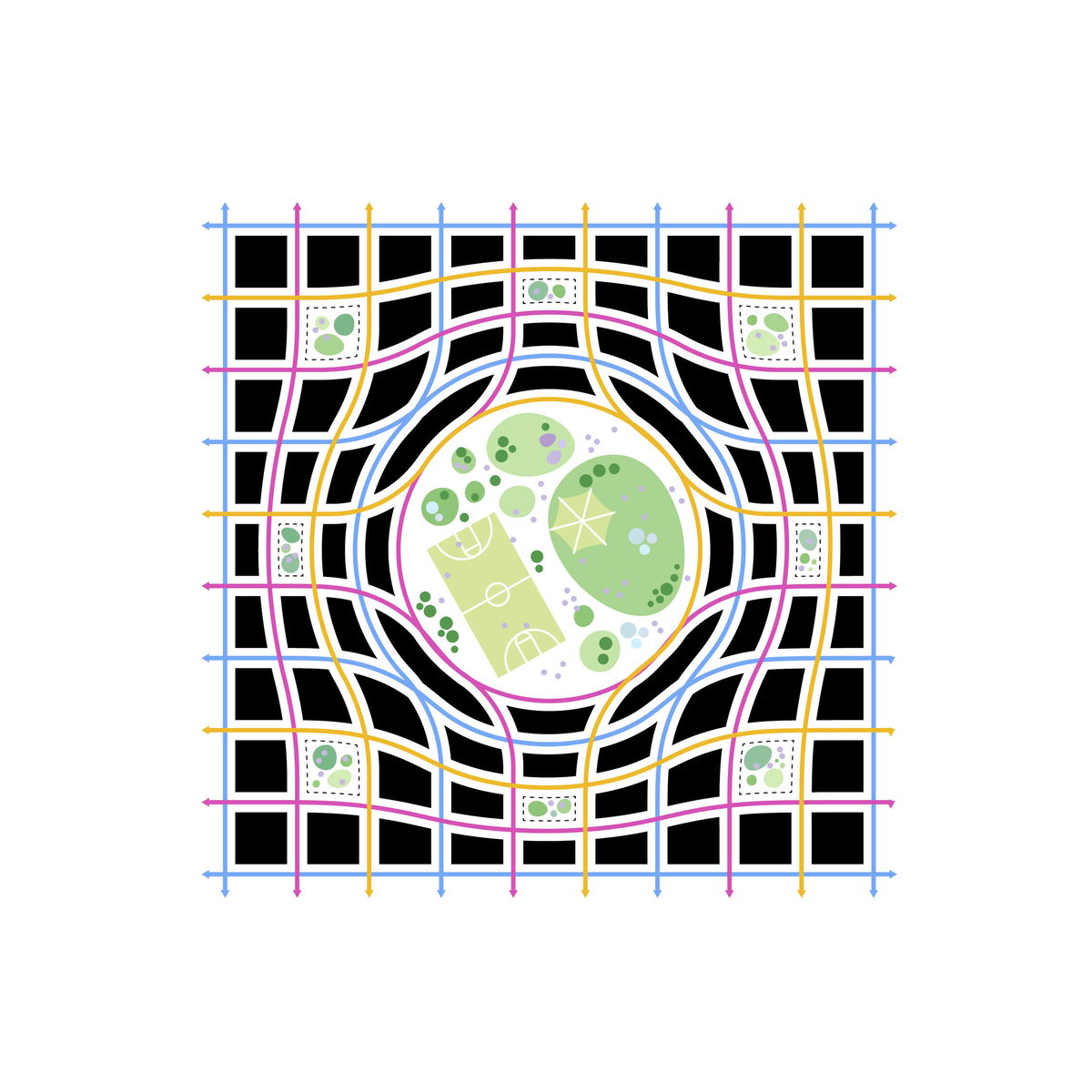
CENTRAL PARK — Thanks to the distortion, the woven grid system continues seamlessly throughout the whole city while accommodating a variety of scales, programs, and outdoor areas.
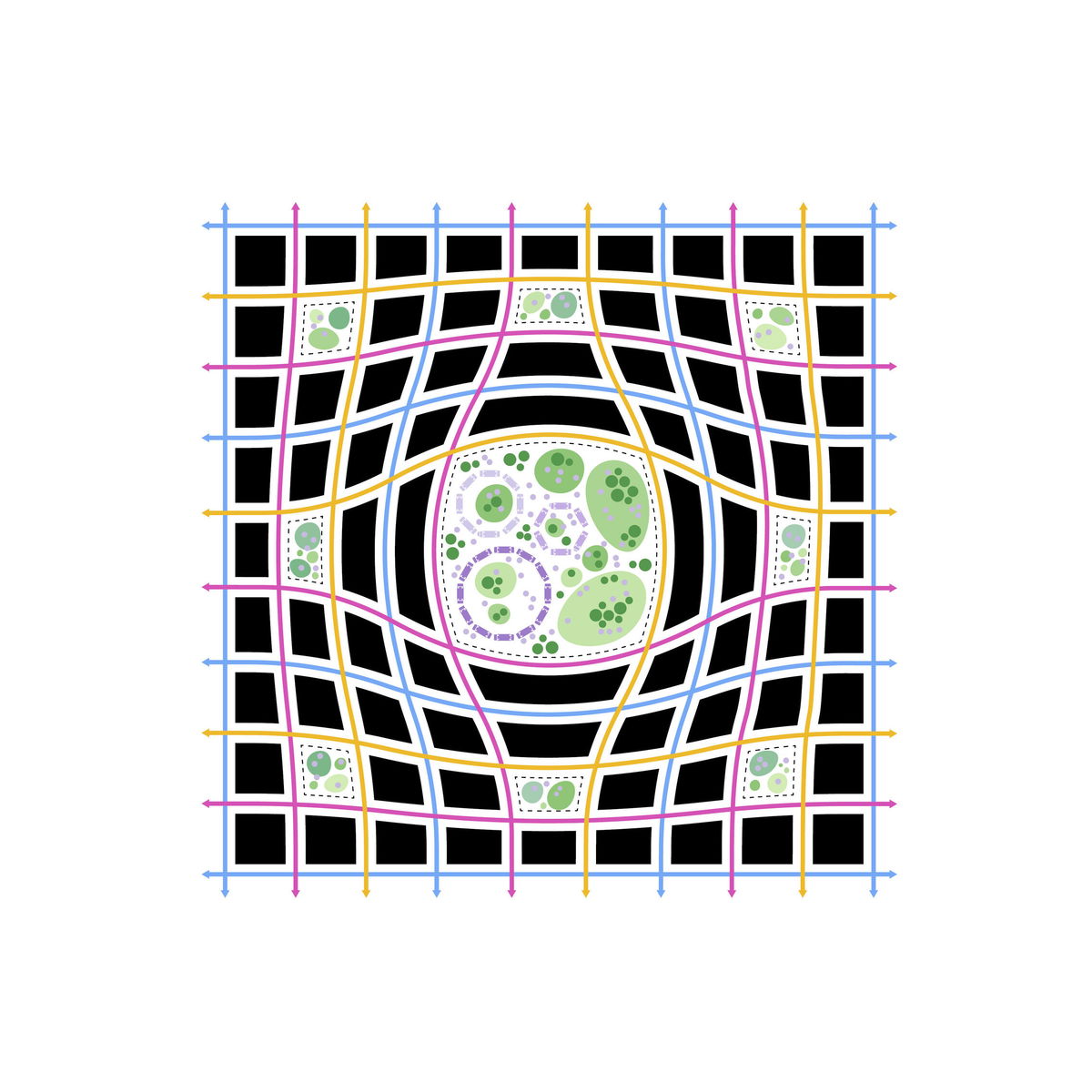
MAIN SQUARE — By distorting the grid, the central courtyard is enlarged to create a large plaza or park that can function as a city-wide public space.
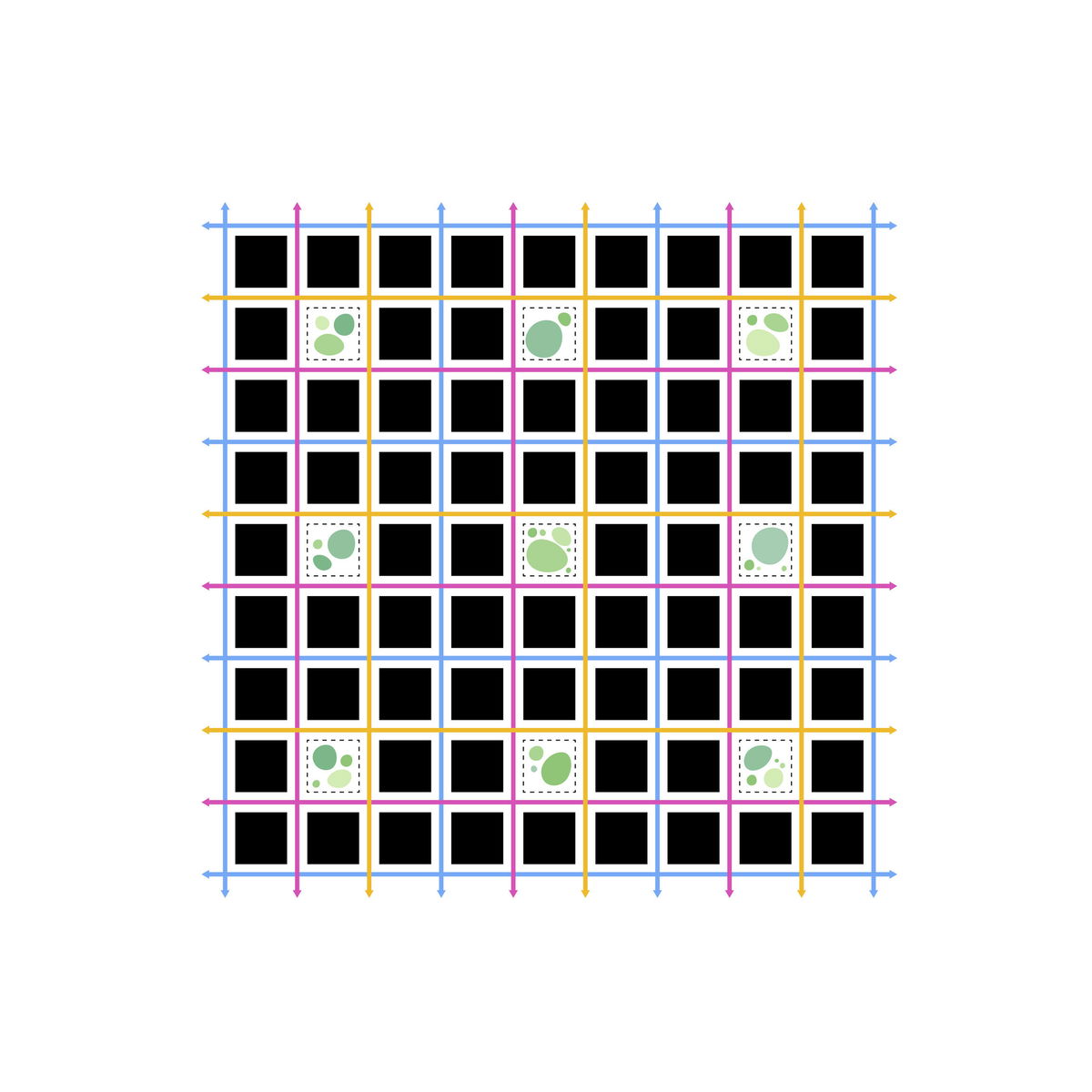
WOVEN CITY — The woven module can be replicated to form a city characterized by a variety of neighborhoods. Each district is connected by perimeter vehicular roads, pedestrian trails, and slow mobility networks.
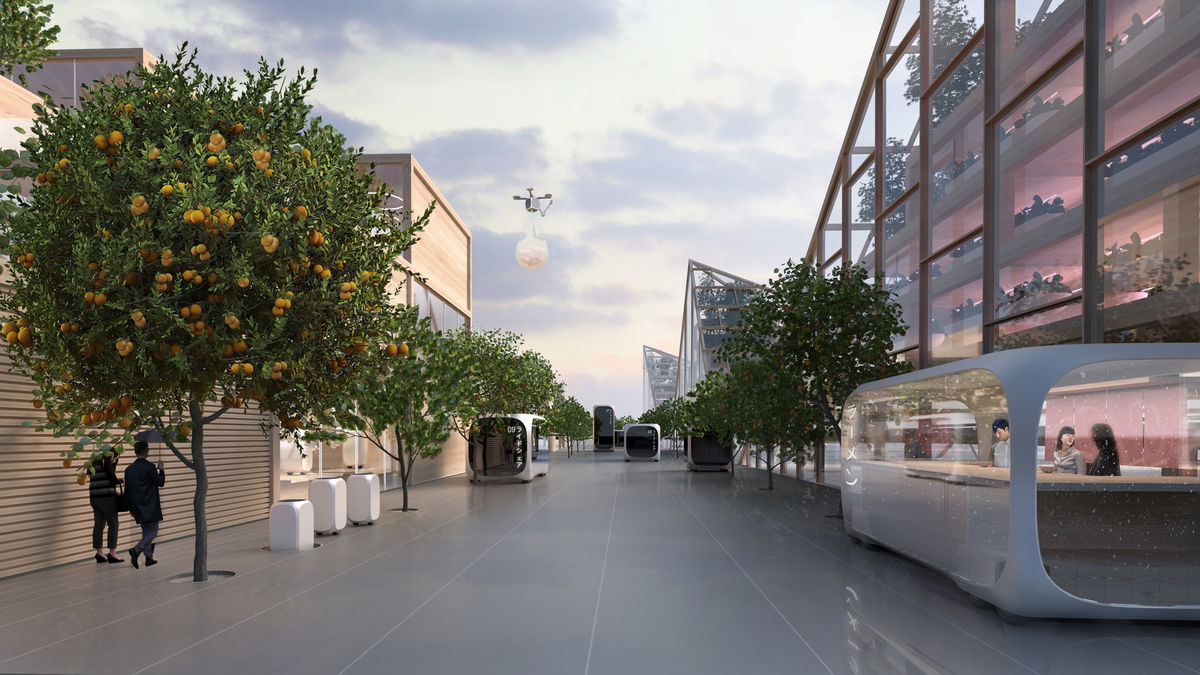
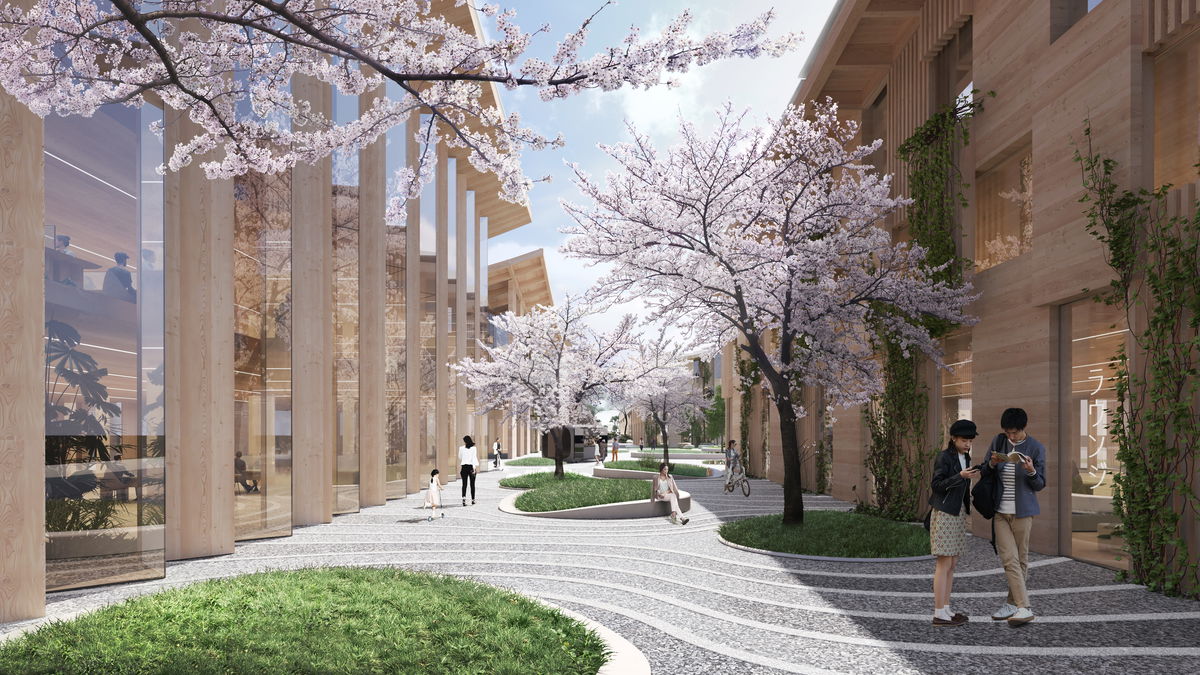
"A swarm of different technologies are beginning to radically change how we inhabit and navigate our cities. Connected, autonomous, emission-free, and shared, mobility solutions are bound to unleash a world of opportunities for new forms of urban life. With the breadth of technologies and industries that we have been able to access and collaborate with from the Toyota ecosystem of companies, we believe we have a unique opportunity to explore new forms of urbanity with the Woven City that could pave new paths for other cities to explore."Bjarke Ingels - Founder & Creative Director, BIG
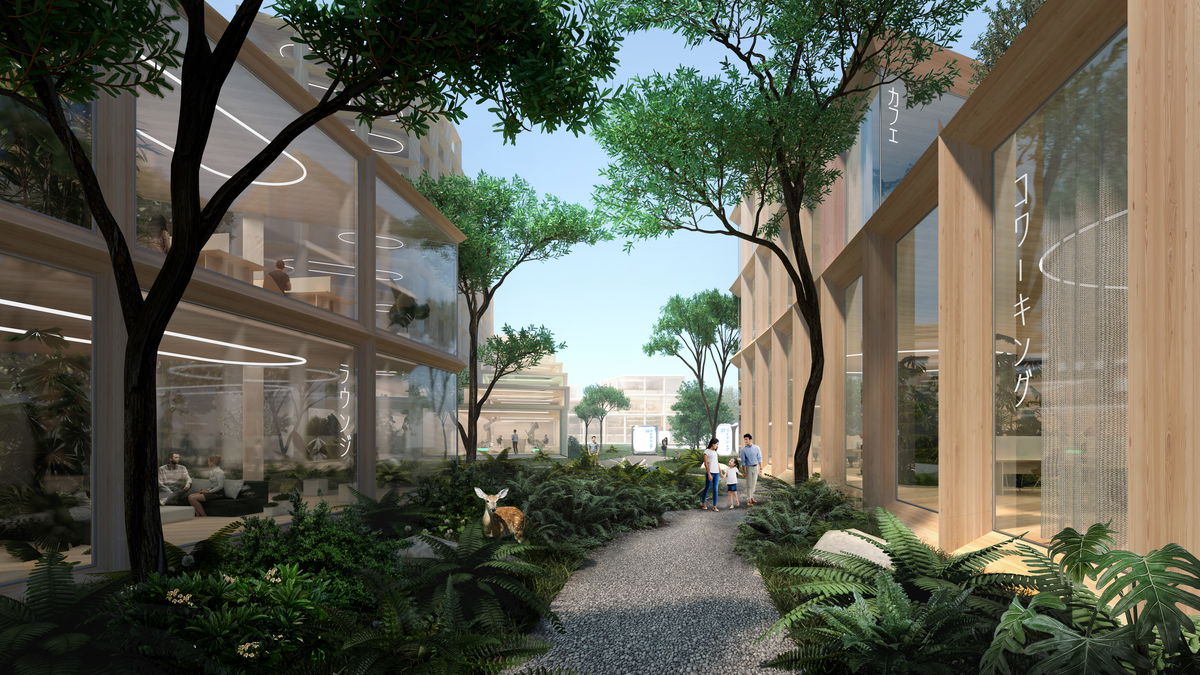
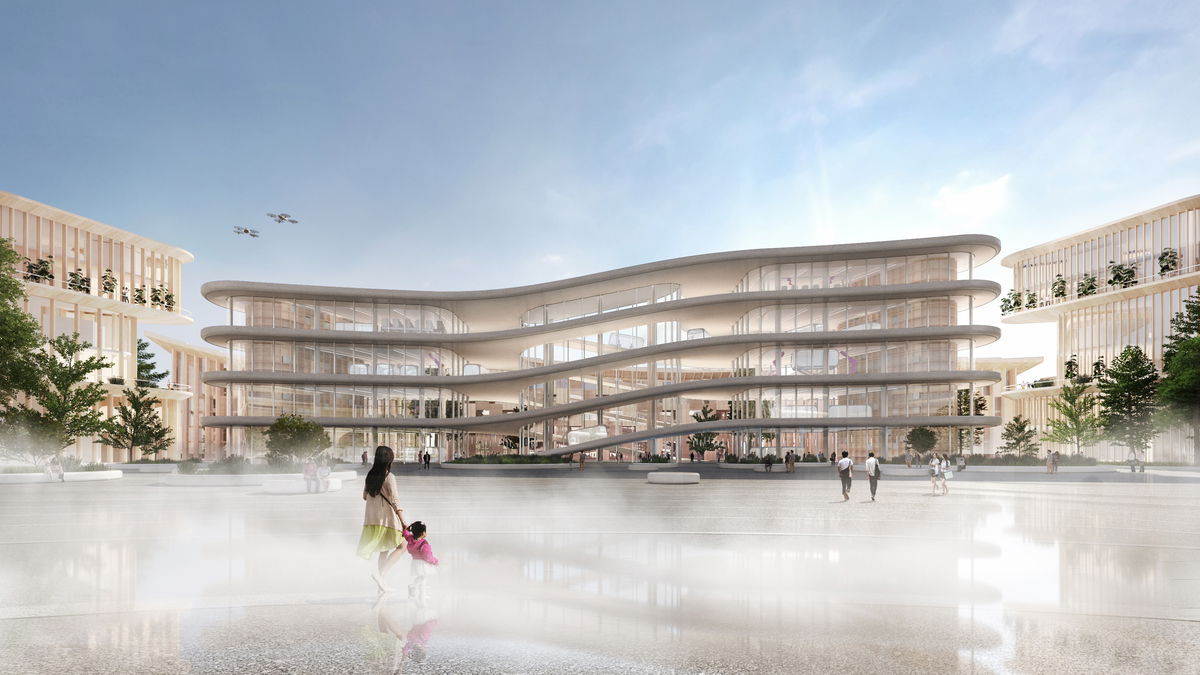
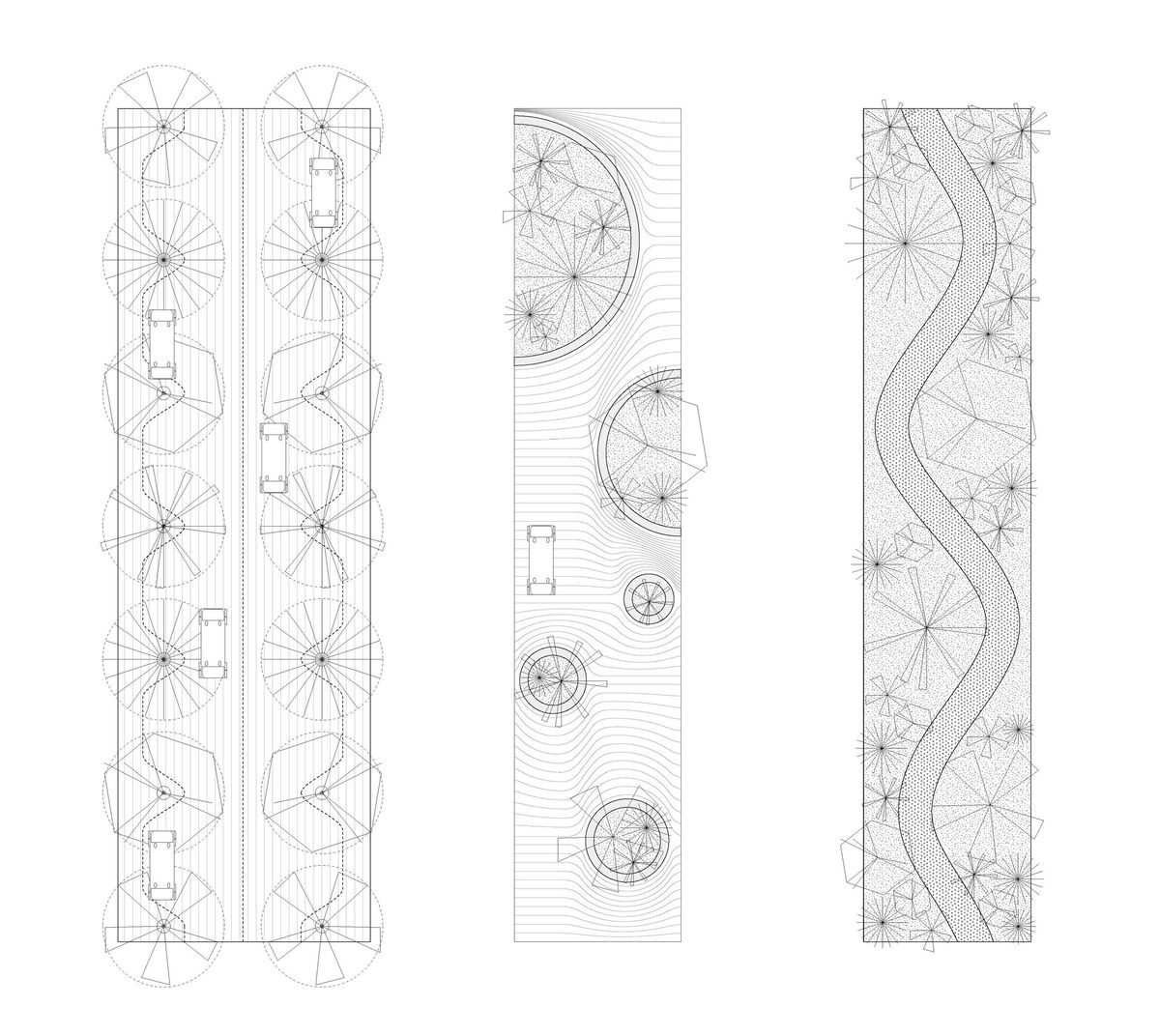
— The three street types are woven into 3×3 city blocks, each framing a courtyard accessible only via the promenade or linear park. The urban fabric of the woven grid expands and contracts to accommodate a variety of scales, programs, and outdoor areas. In one instance, a courtyard balloons to the scale of a large plaza, and in another becomes a central park, providing a city-wide amenity.
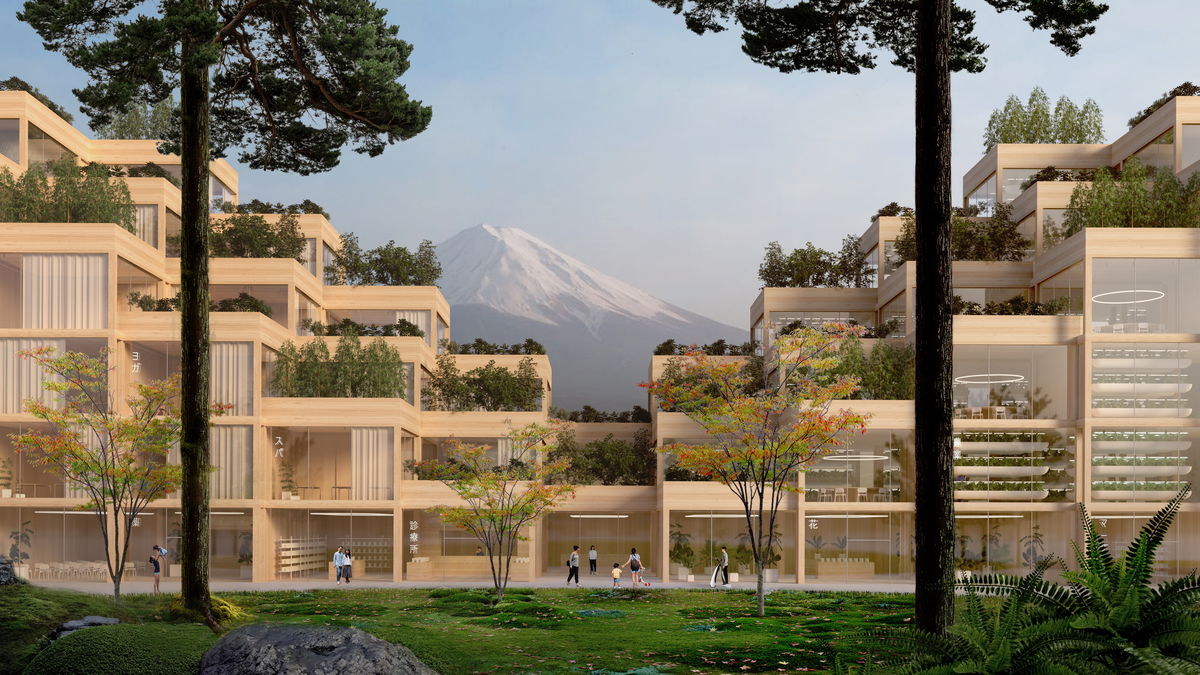
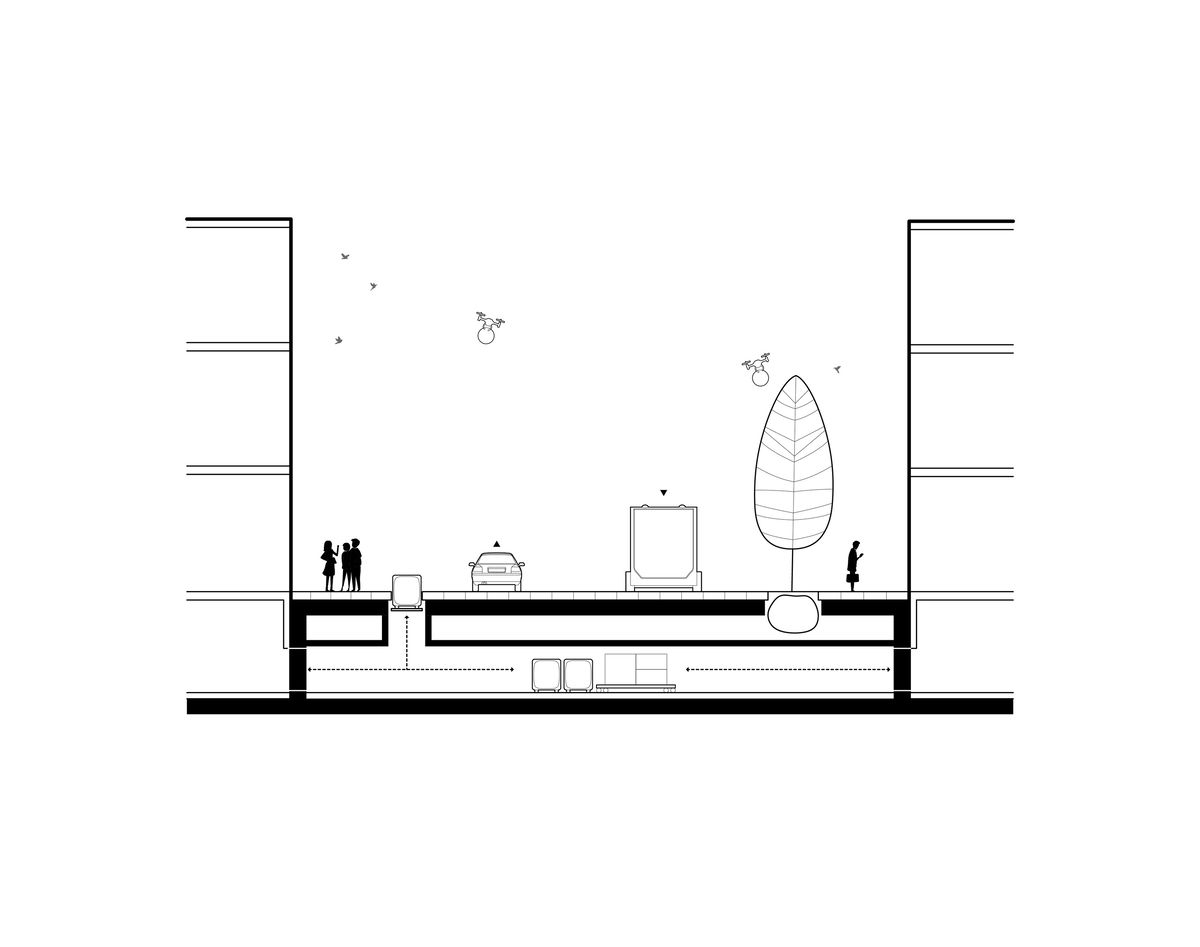
VEHICULAR ROAD
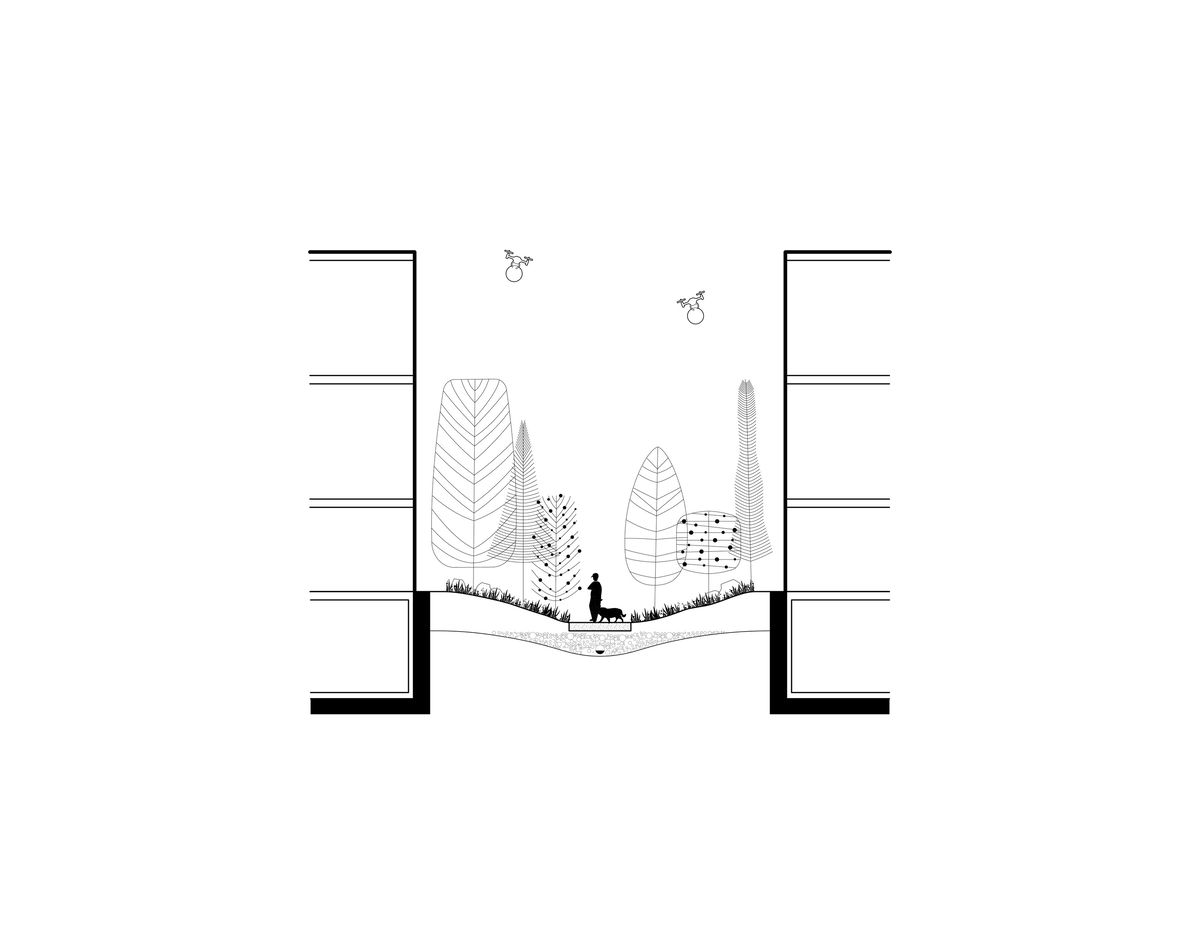
LINEAR PARK
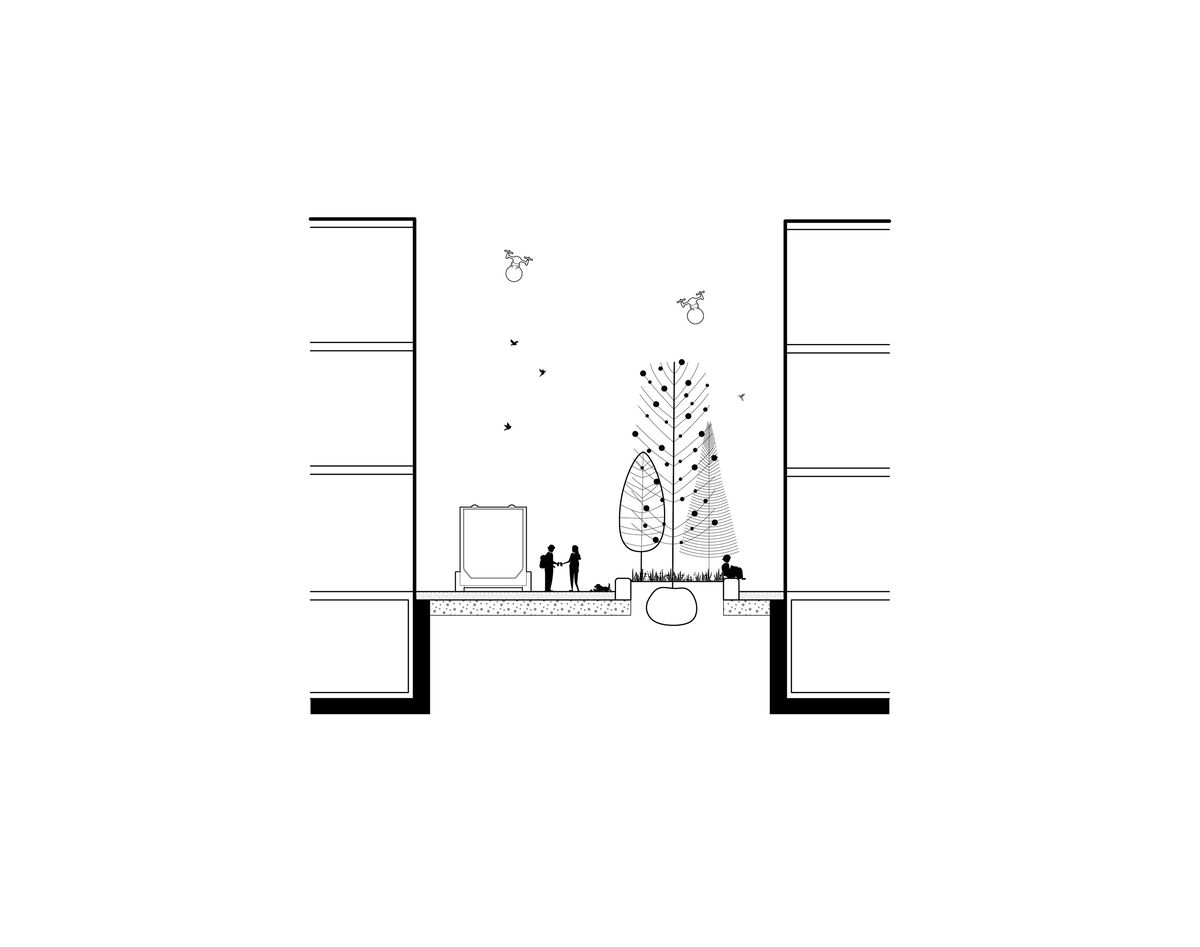
RECREATIONAL PROMENADE
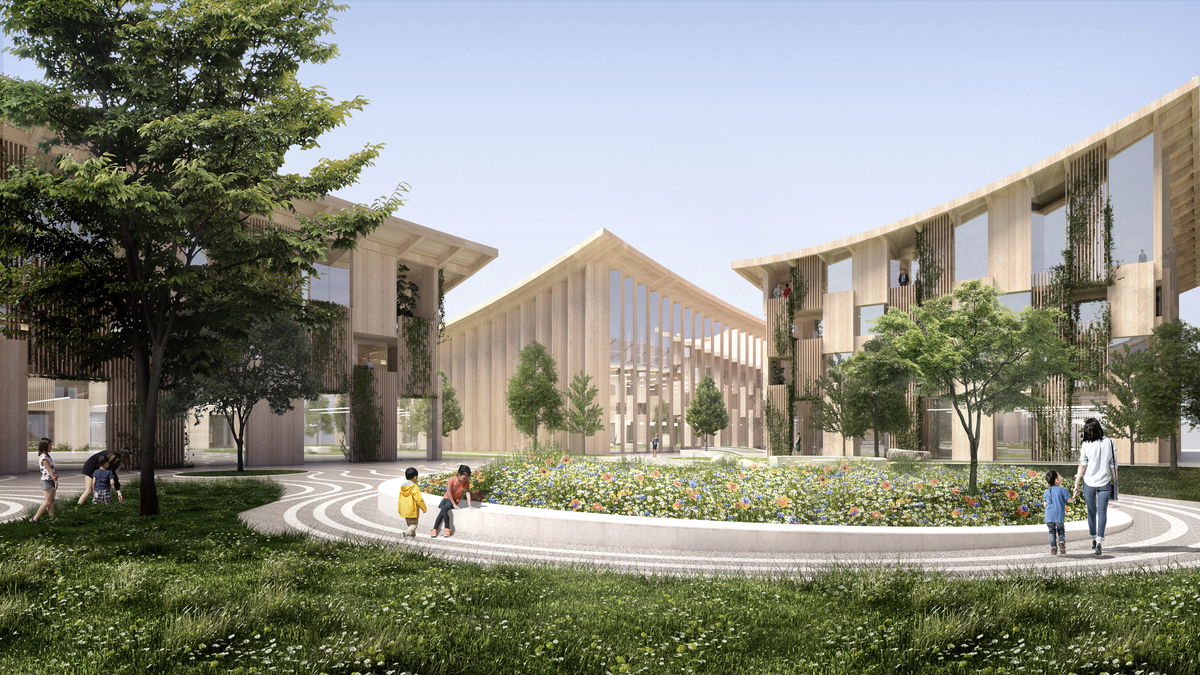
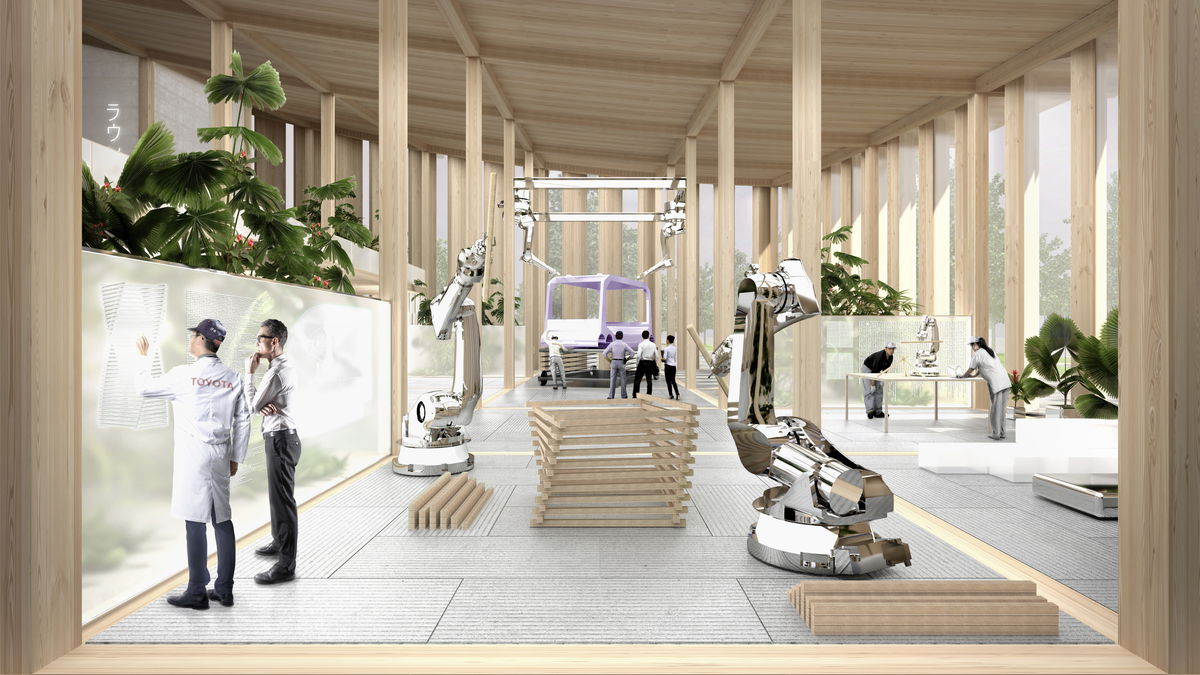
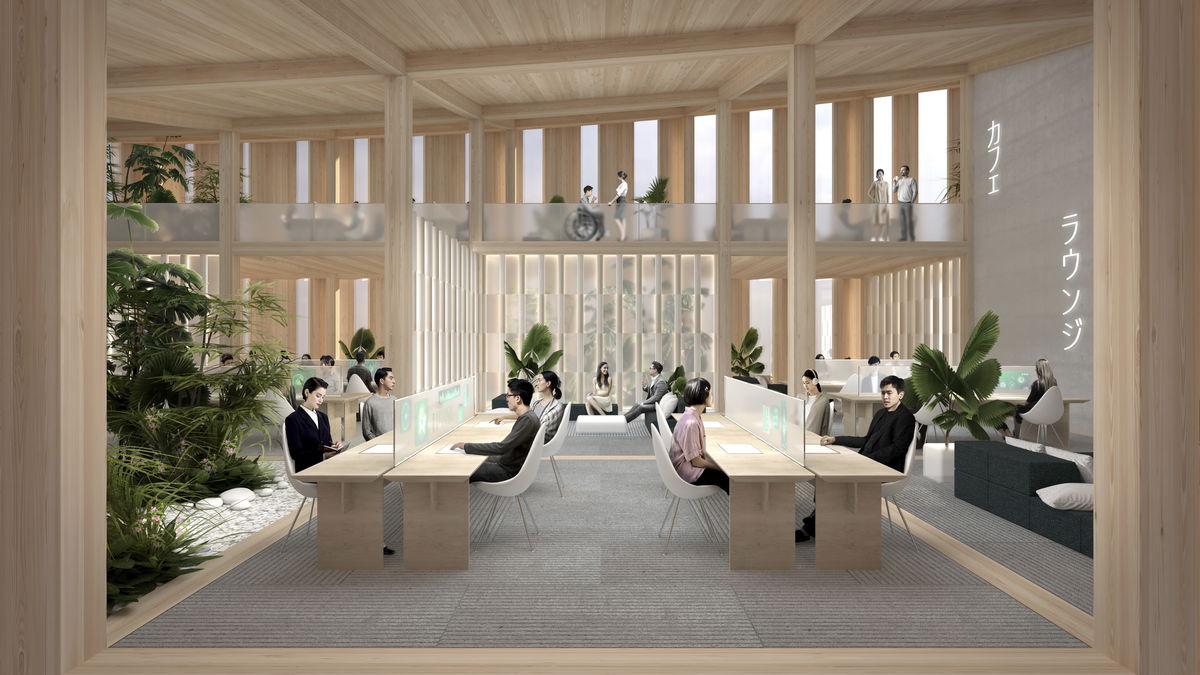
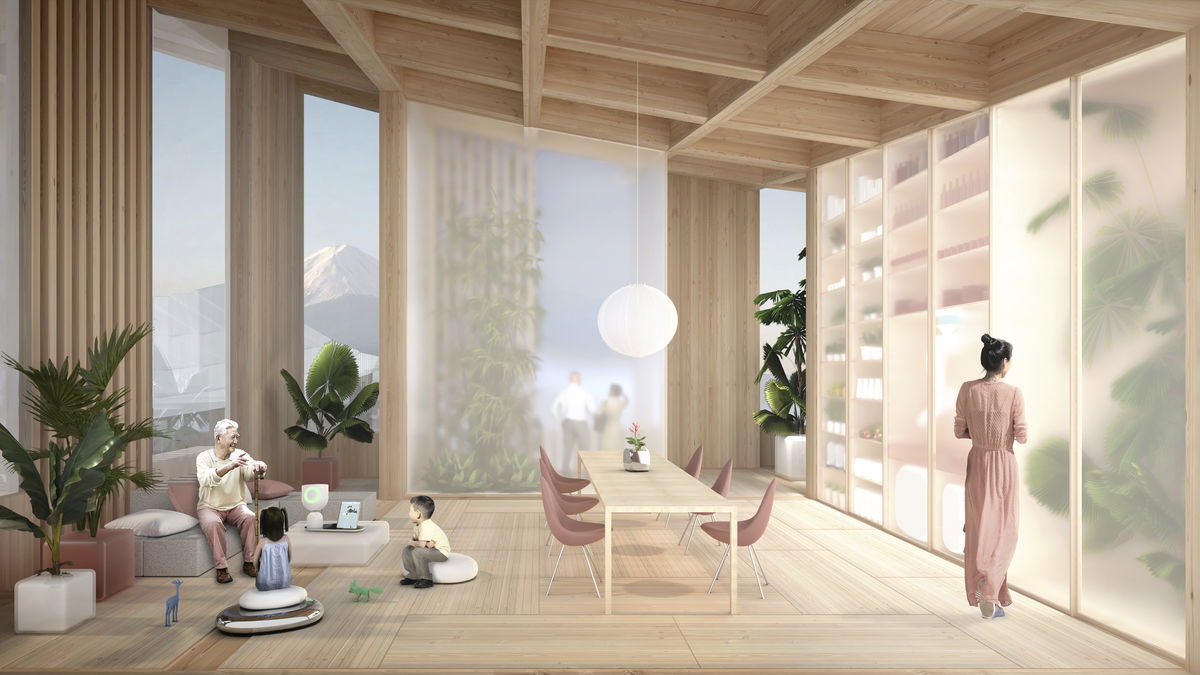
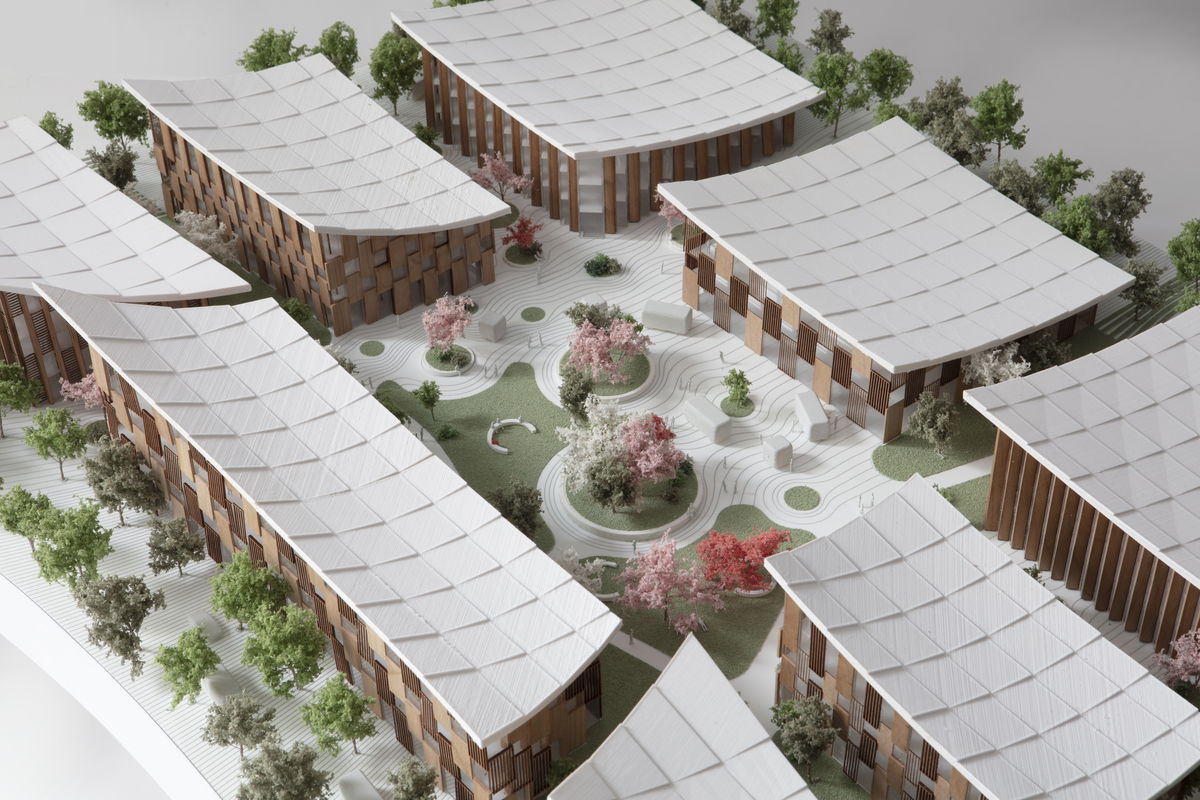
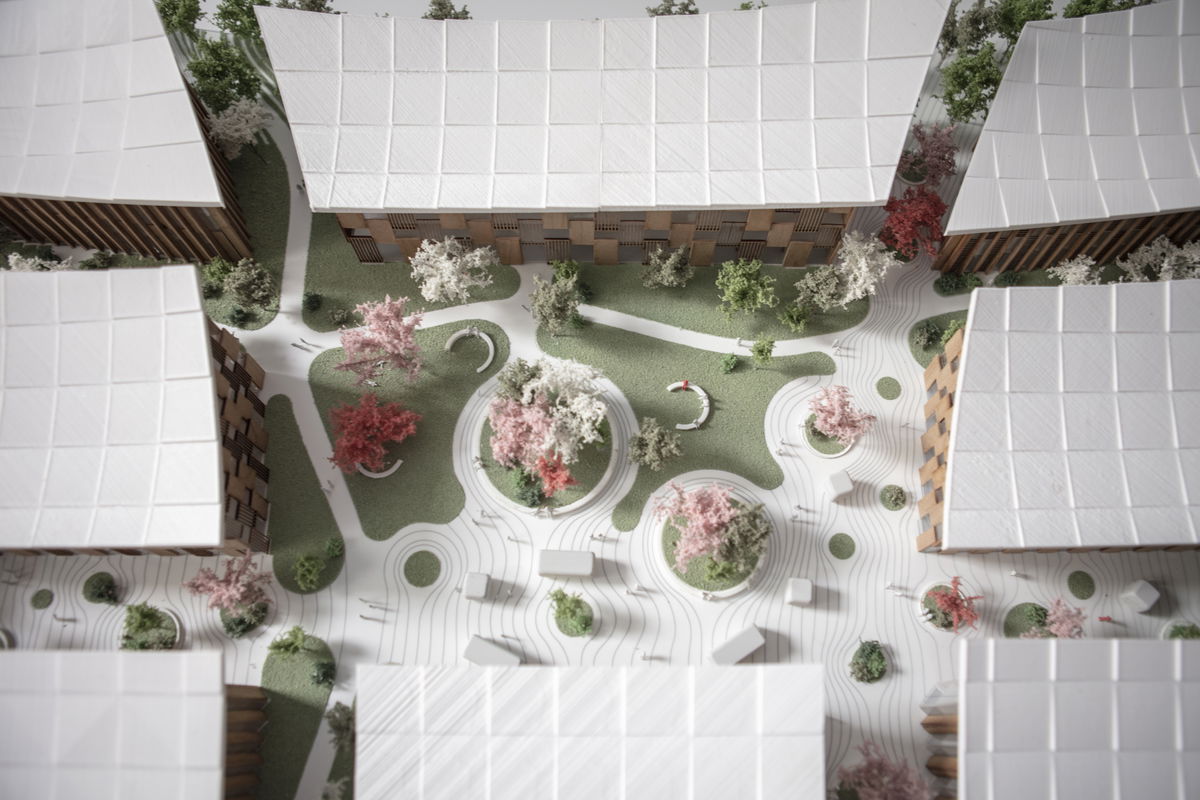
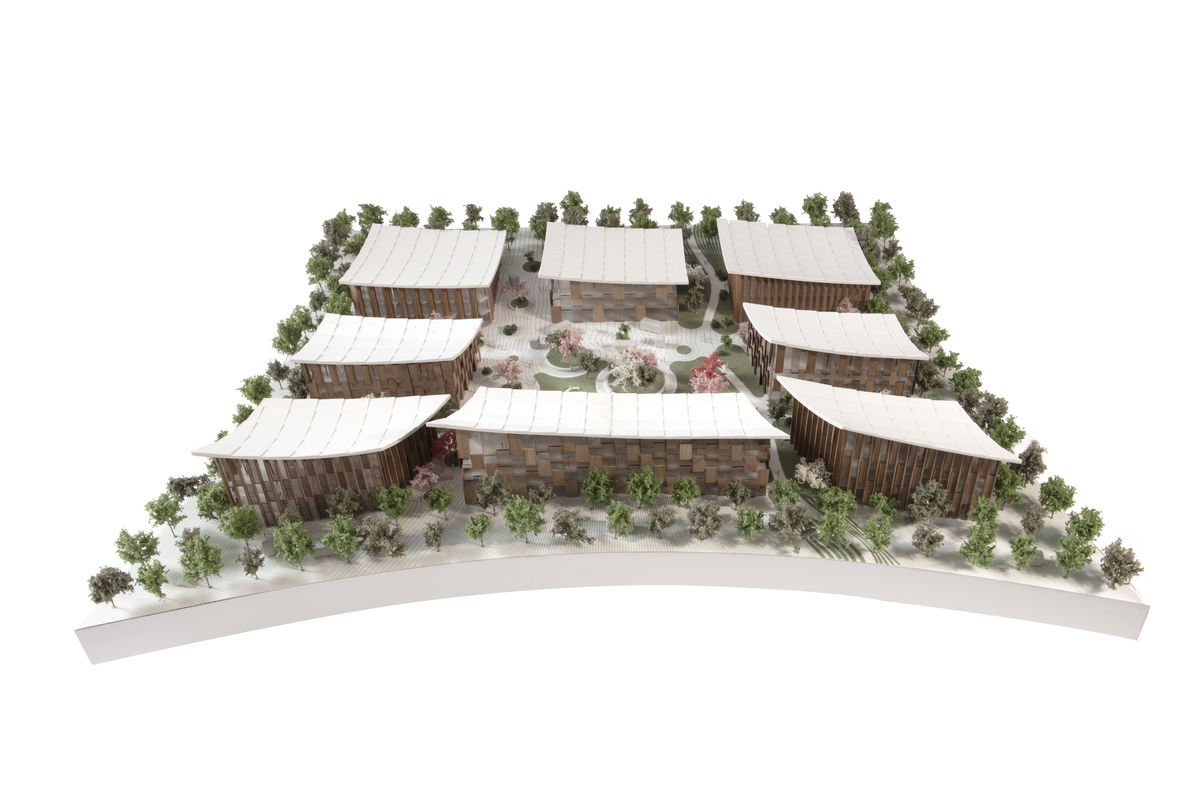
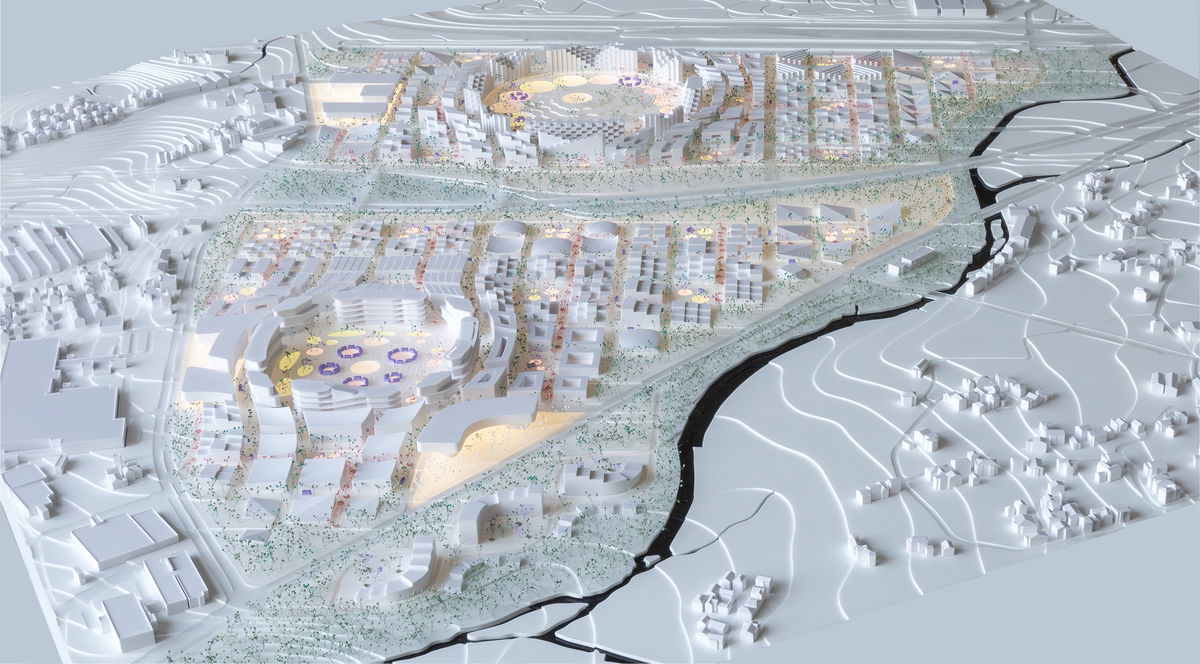
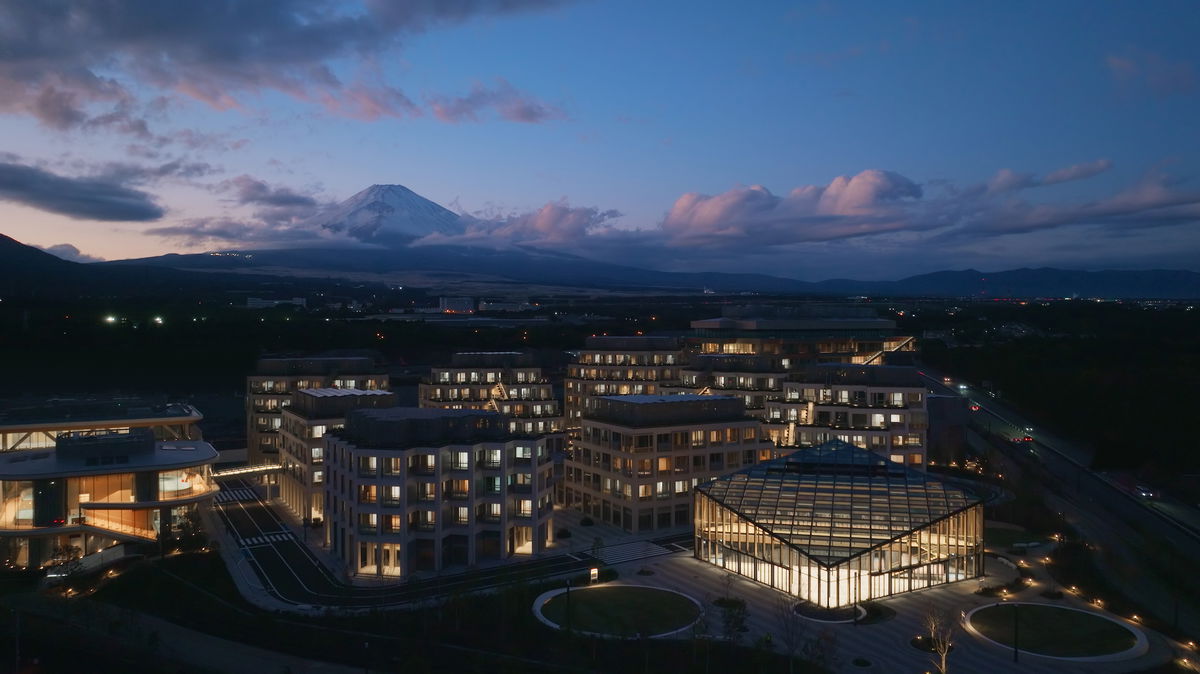
Partner in Charge
Bjarke Ingels
Leon Rost
Giulia Frittoli
Project Manager
Yu Inamoto
Design Lead
Jason Wu
Pauline Lavie-Luong
Project Architect
Yumiko Matsubara
Project Team
Daniel Sundlin
Agla Egilsdottir
Agne Rapkeviciute
Alvaro Velosa
Andres Romero
Tran Le
Cristina Medina-Gonzalez
David Iseri
Gary Polk
Guillaume Evain
Isabella Marcotulli
Joanne Chen
Joseph Baisch
Kam Chi Cheng
Kayeon Lee
Kelly Neill
Kristian Hindsberg
Lingyi Xu
Linqi Dong
Lucia Sanchez Ramirez
Maki Matsubayashi
Melissa Jones
Minjung Ku
Nasiq Khan
Oliver Thomas
Peter Sepassi
Ryan Duval
Shane Dalke
Tara Abedinitafreshi
Terrence Chew
Thomas McMurtrie
Tracy Sodder
Valentino Gareri
Veronica Watson
Wes Thompson
Xi Zhang
Yi Lun Yang
Bell Cai
Yushan Huang
Brandon Cappellari
Carlos Castillo
Christopher Pin
Jeffrey Shumaker
Jialin Yuan
Alexander Jacobson
Amanda Lima Soares Da Cunha
Andrea Hektor
Andy Coward
Brian Zhang
Duncan Horswill
Einat Lubliner
Fernando Longhi Pereira da Silva
Frederic Lucien Engasser
James Donaldson
Jennifer Minjee Son
Jesper Kanstrup Petersen
Jin Park
Jonathan Hein
Jose Lacruz Vela
Louise Mould
Mai Lee
Margherita Gistri
Nicolas Lapierre
Olga Khuraskina
Omar Mohamed Nabil Mohamed Saad Mowafy
Paul Johann Henrich Kohlhaussen
Samantha Okolita
Sille Foltinger
Tore Banke
Xingyue Huang
Xuechen Kang
Benjamin Caldwell
Raven Xu
Bartłomiej Lew
Yiqi Song
Lucrezia Picinali
Amie Yao
Alessandro Sciolari
Shuo Yang
Peter Andres Ehvert
Ahmad Tabbakh
Will Chuanrui Yu
Sinam Hawro Yakoob
Pernille Uglvig Sangvin
Olivia Ann Egeberg
Pearlyn Mei Fen Chang
Nouran Wael Mohamed Rashad Mohamed Sherif
Awards
World Architecture Festival Smart City WAFx Award Winner, 2021
Collaborators
Kume Sekkei
Arup Japan
Placemedia
Sato Facilities
Nikken Sekkei
Squint/Opera Inc.
Mobility in Chain
Atelier Ten
